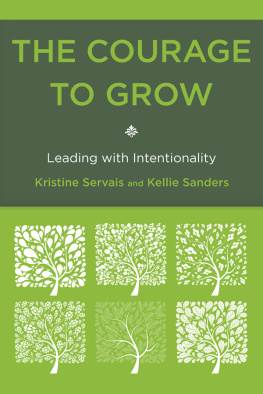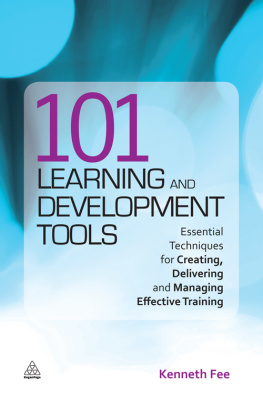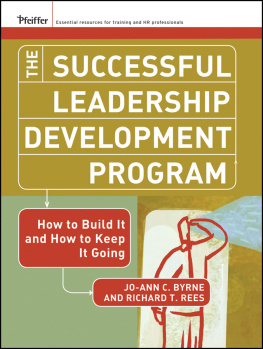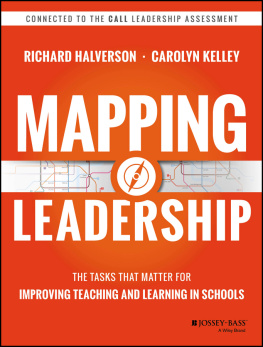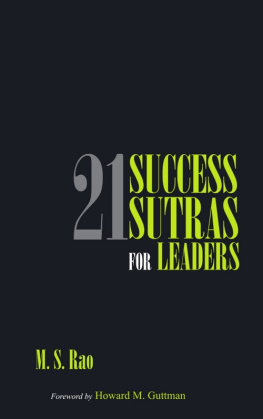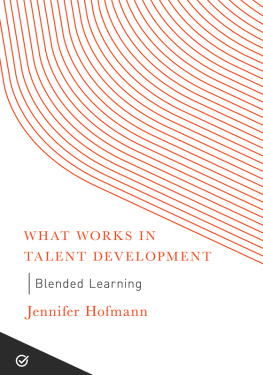WOMEN AND
LEADERSHIP
DEVELOPMENT
IN COLLEGE
WOMEN AND
LEADERSHIP
DEVELOPMENT
IN COLLEGE
A Facilitation Resource
Jennifer M. Pigza, Julie E. Owen, and Associates
FOREWORD BY
Paige Haber-Curran and Daniel Tillapaugh
COPYRIGHT 2021 BY STYLUS PUBLISHING, LLC.
Published by Stylus Publishing, LLC.
22883 Quicksilver Drive
Sterling, Virginia 20166-2019
All rights reserved. No part of this book may be reprinted or reproduced in any form or by any electronic, mechanical, or other means, now known or hereafter invented, including photocopying, recording, and information storage and retrieval, without permission in writing from the publisher.
Library of Congress Cataloging-in-Publication Data
Names: Pigza, Jennifer M., editor. | Owen, Julie E., editor. Title: Women and leadership development in college : a facilitation resource / [edited by] Jennifer M. Pigza, Julie E. Owen and associates ; foreword by Paige Haber-Curran and Daniel Tillapaugh.
Description: First edition. | Sterling, Virginia : Stylus Publishing, LLC., 2021. | Includes bibliographical references and index. | Summary: This text is a detailed resource for anyone interested in women and leadership education, whether through a full-length course, a weekend workshop, or a one-time topical session. Each module includes includes learning objectives, detailed instructions, and ideas for adapting the module to diverse learning spaces and audiences-- Provided by publisher.
Identifiers: LCCN 2021017927 (print) | LCCN 2021017928 (ebook) | ISBN 9781642670127 (cloth) | ISBN 9781642670134 (paperback) | ISBN 9781642670141 (adobe pdf) | ISBN 9781642670158 (epub)
Subjects: LCSH: Leadership in women. | Leadership--Study and teaching (Higher)
Classification: LCC HQ1150 .W645 2021 (print) | LCC HQ1150 (ebook) | DDC 303.3/4082--dc23
LC record available at https://lccn.loc.gov/2021017927
LC ebook record available at https://lccn.loc.gov/2021017928
Printed in the United States of America
All first editions printed on acid-free paper
that meets the American National Standards Institute
Z39-48 Standard.
Bulk Purchases
Quantity discounts are available for use in workshops and for staff development.
Call 1-800-232-0223
First Edition, 2021
To us all: May we become the leaders the world is waiting for.
Contents
Paige Haber-Curran and Daniel Tillapaugh
R. J. Youngblood
Daniel Tillapaugh
Heather D. Shea
Natasha T. Turman and Shamika KariKari
Melissa Rocco
Katherine Quigley
Aoi Yamanaka and Sharrell Hassell-Goodman
Arnle Francis and Rukan Said
Erika Cohen Derr
Paige Haber-Curran and Grisell Prez-Carey
Adrian Bitton and Danyelle Reynolds
Paige Haber-Curran
Misty Krell
Keith E. Edwards
Aoi Yamanaka
Aoi Yamanaka
Jennifer M. Pigza
Cher Weixia Chen
Graziella Pagliarulo McCarron
Leigh Amadi Dunewood, Natasha H. Chapman, and Stephanie Chang
Julie E. Owen
Amy C. Barnes
Megan J. Hennessey
Graziella Pagliarulo McCarron and Jennifer M. Pigza
Julie E. Owen
Daniel Tillapaugh
Trisha Teig and Kathy L. Guthrie
Adrian Bitton and Danyelle Reynolds
Jennifer M. Pigza
Michaela Daystar
Adrian Bitton and Danyelle Reynolds
Maritza Torres and Erica Wiborg
Nolizwe M. Nondabula and Karin M. Cotterman
Kristen Wright
Arnle Francis and Rukan Said
Foreword
Paige Haber-Curran and Daniel Tillapaugh
Fifteen years ago we met in graduate school and immediately connected over our passion for student leadership development. Our interest in facilitating opportunities to develop leadership capacity in students stemmed from our own experiences as undergraduate students. Dan was a prominent student leader, serving as his campuss student body president and a resident assistant. Paige had extensive experience as a peer leader within a 4-year comprehensive leadership program and was intrigued by how to empower individuals who may not self-identify as leaders to engage in opportunities to develop their leadership capacity. During our graduate studies we gained ample experience in leadership education through developing, teaching, and facilitating curricular and cocurricular leadership experiences for undergraduate students. We also began our scholarly pursuits in the field, working alongside and learning from and with incredible leadership scholars and educators.
Fast-forward a few years, and we once again were studying and working together as doctoral students. Naturally, the topic of leadership development was central to many of our conversations. Our coursework challenged us to think about leadership and about ourselves in different ways, which in turn had an impact on the undergraduate leadership courses we taught. Many of our course dialogues focused on the role of identity in leadershipreflecting on our own experiences as learners and teachers, modeling this reflection for the students in our courses, and encouraging the same from the students.
One semester, Paige taught an undergraduate course on womens leadership. There were 12 exceptional women in the course, eager to explore leadership through the lens of gender and with a focus on their identity as women. As a group, they peeled back the layers of their respective identities, troubled the concept of leadership, and grew in their sense of self as women and as leaders. For one class session, Dan enjoyed guest lecturing, discussing the ways that gender is socialized and mediated by other forms of identity. The course and the space cocreated alongside the students was truly a gift.
We reminisce on these particular experiences in light of Jennifer Pigza, Julie Owen, and their associates contributions in Women and Leadership Development in College: A Facilitation Resource. In the 10 years since Paiges instruction of the womens leadership course, there has been an incredible amount of work done to advance the topic of identity and leadership particularly women and leadership.
In 2017, we coedited a monograph on critical perspectives on gender and student leadership in the New Directions for Student Leadership series. In that work, we wrote:
We encourage leadership educators to be bold and innovative in their work and to help students become critical consumers of what they are learning about leadership through a critical, gendered lens.... Our students are living in a world that requires new ways of thinking about identity, particularly gender, and leadership; our leadership programs should be a reflection of that world. (Haber-Curran & Tillapaugh, 2017, pp. 1920)


